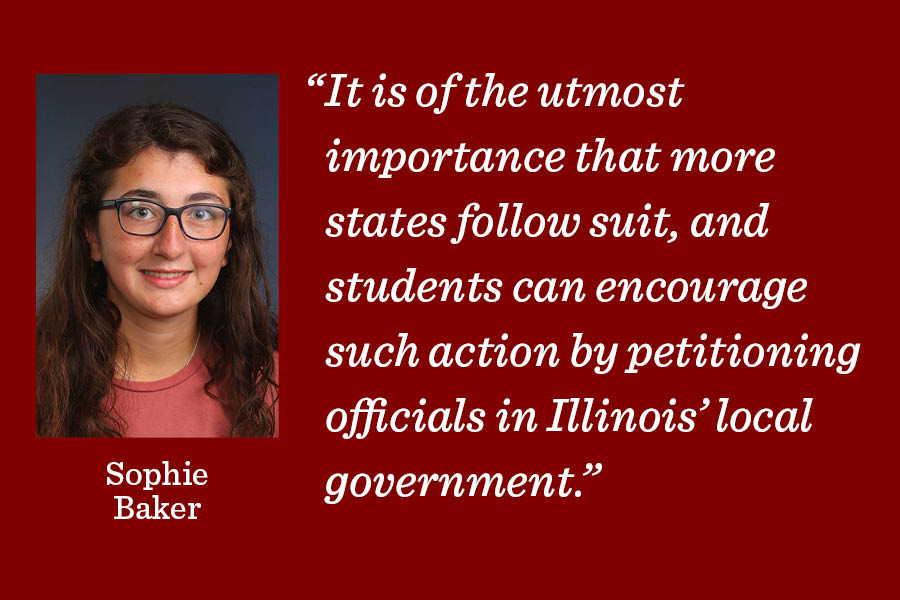Implement ranked-choice voting to reduce polarization
Midway Staff
By encouraging positive campaigning and promoting greater consensus, ranked-choice voting can ease the strains of polarization in our country, argues reporter Sophie Baker.
May 3, 2022
In this increasingly partisan political environment, a plurality of the popular vote is all that is required to win an election, and is sometimes not even necessary. This means the representative government of the United States doesn’t actually represent the preferences of the entire population.
The root of this issue is the way general elections are decided. Candidates only need to appeal to a select group of voters, and, according to a study conducted by the Washington Post, this encourages Republicans, who tend to have more uniform views, to adopt more extreme policies. This has the opposite effect on Democrats, who have a broader spectrum of views and thus become more moderate to appeal to all Democratic voters.
Voters follow similar trends to the parties that they align with, meaning many more radical Democrats compromise their values to vote for someone who is more likely to win. To address this, more states, including Illinois, must pass laws facilitating ranked choice voting in elections.
In this system, voters rank candidates in order of their preference. First-choice votes are counted first. If a candidate receives a majority, they win. If this doesn’t happen, the candidate with the fewest votes is removed from contention. The second-choice votes from those voters are transferred to the remaining candidates. This continues until a candidate receives a majority.
While some people argue that RCV violates the “equality principle,” which states that each voter is only entitled to one vote, RCV serves to clarify a voter’s preference for whom the voter’s one vote should be cast.
The most evident benefit to an RCV system is that the legislators would actually represent the majority. Until Maine adopted RCV in 2016, 9 of the 11 gubernatorial elections between 1994 and 2014 were won with less than 50% of the vote.
In standard elections, candidates benefit from attacking their opponents, leading to polarizing campaigns. RCV encourages positive campaigning, because candidates must appeal to as many voters as possible.
Many local officeholders, including Chicago’s mayor and city council, are chosen in two rounds: a general election and a runoff. RCV can save the jurisdiction a significant amount of money — the entire cost of the second election.
Many states and cities have already begun adopting RCV, which has served to reach across the partisan divide while helping to build a more representative government. It is of the utmost importance that more states follow suit, and students can encourage such action by petitioning officials in Illinois’ local government.
































































